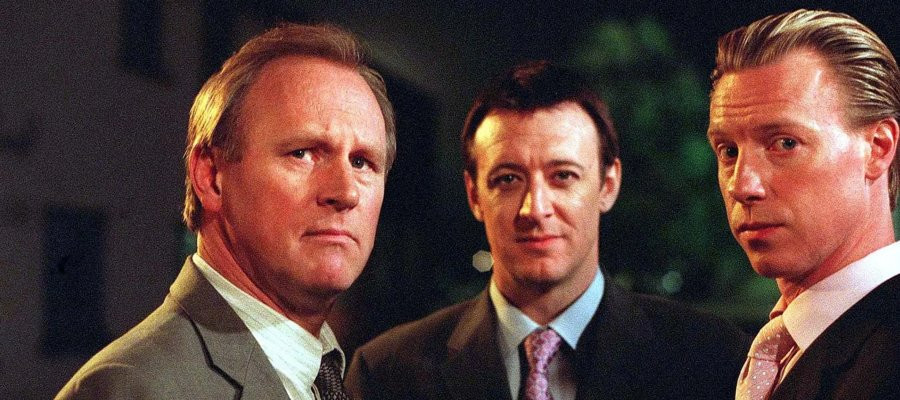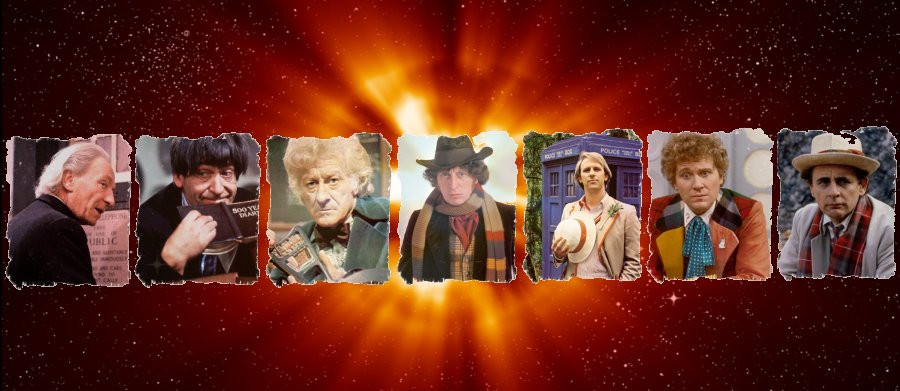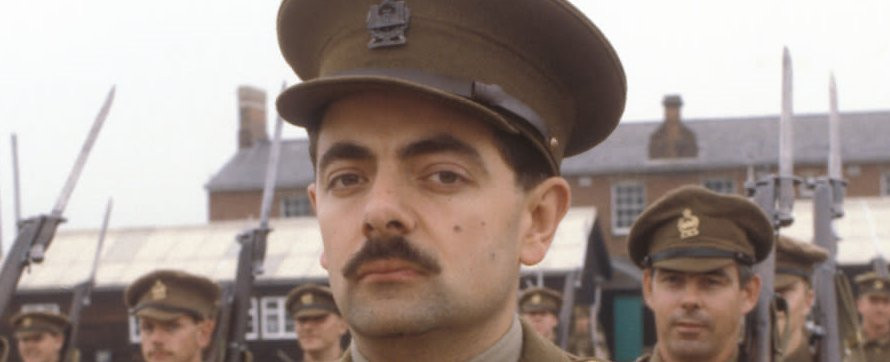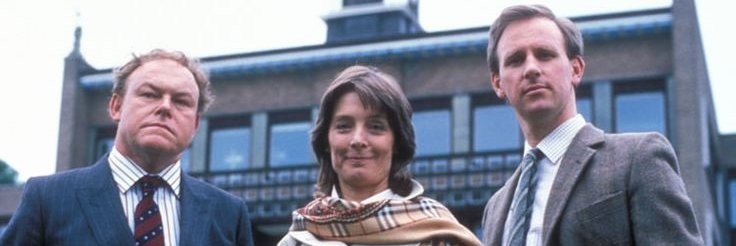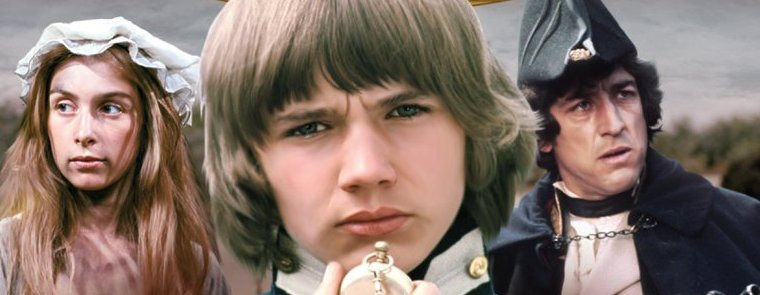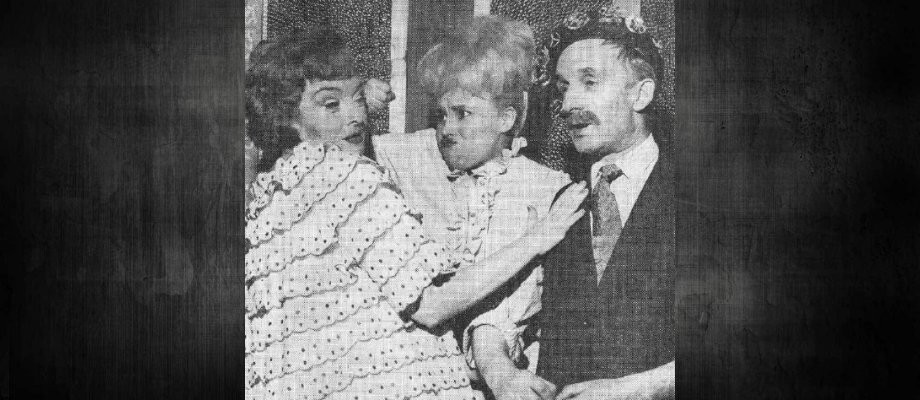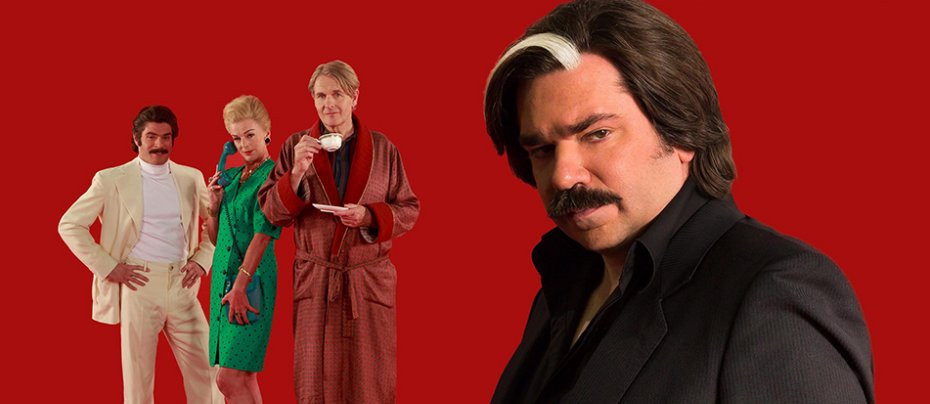
Toast of London
2012 - United KingdomMost surreal of all is the show's habit of bursting into brief musical numbers, sometimes "breaking the fourth wall" in the process
Review: John Winterson Richards
Humour is famously subjective and Toast of London set out deliberately to test the boundaries. Sometimes it crosses them and even fans may feel it frequently spills over into bad taste, but at its best it is brave, original, and very, very funny - not words that can be applied to many television productions coming out of state owned networks in Britain over the last decade when the fear of "offending" the wrong people has caused them to lose sight of the basic purpose of comedy.
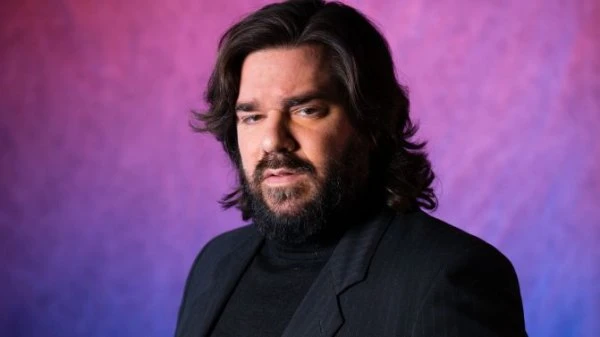
It is the ultimate manifestation of "the Matt Berry Character," who first became well known in The IT Crowd and is currently enjoying himself in What We Do in the Shadows, but who, it should perhaps be stressed, is not necessarily Berry himself. The Matt Berry Character is loud, not only blessed with Berry's trademark booming voice but unconstrained about using it in any and all social situations, as well as aggressively extrovert, bombastic, self-centred, theatrical of gesture, affected in pronunciation, generally insensitive to others, and obsessed with undiscriminating sex, but not without hints that all this is hiding an inner vulnerability.
The acting profession is therefore the Matt Berry Character's obvious vocation. The eponymous Steven Toast is very much an actor's act-or. One cannot help wondering if Berry was influenced, at least in part, by Peter Sellers' classic Warrington Minge.

Where it was implied that Minge was a failed Shakespearean or a repertory hack, a very common type in Sellers' time, Berry's Toast has somehow attained a degree of prominence, if not exactly success. We first meet him when he has the leading role in a controversial stage production in London, and it seems that he has built up a long list of supporting credits in film and television. He is actively looking for more, despite holding most of them in contempt and being quite ignorant of the modern entertainment business. Meanwhile, to earn his living, he is dependent on regular "voice over" work - here at least is a definite self-reference by Berry, whose distinctive tones have long made him a recording studio favourite.
Toast despises this and is despised in his turn by the recording studio staff who play all sorts of practical jokes on him - except that one is never quite sure how much is them joking and how much is Berry satirising "voice over" work in general.

Toast's only real interest, apart from sex and alcohol, is his own social circle, which seems to consist mainly of his peers in the acting profession. These are not big stars, but the second division, prolific character actors and those who have seen better days. Some real-life actors, most notably John Nettles and Peter Davison, gamely play highly fictionalised versions of themselves. Other famous names are played by impersonators. There is a sly running joke about deceased celebrities appearing.
Most of the conversation in Toast's circle seems to refer to obscure fictional actors, nearly all of whom are given ridiculous names. Toast likes to present the image of a 'Guardian' reader but in reality he is a throwback to a past age. His attitudes, words, and actions reflect his background in the minor gentry, and much of the humour of the show lies in its transgression of fashionable assumptions. It is actually a strong satire on the notion of so called "political correctness" under the guise of a satire on the "politically incorrect" in the person of Steven Toast. The "PC Police" turn out to be a real thing.
Toast's reactionary instincts are summed up by the way his social life revolves around the fictional "Colonial Club," based on the real-life Colony Room in Dean Street, typical of the rather downmarket members-only drinking dens, most of them exclusively male, that used to be a considerable force in London life and in the UK in general before the reform of licensing laws. It is implied that the Colonial is located in or near Soho and Leicester Square, traditionally the hub of the British cultural industry, and is evocative of the Jeffrey Bernard Is Unwell crowd.

His best friend, fellow struggling actor, and landlord, Ed Howzer-Black, is played exquisitely by Robert Bathurst with the perfect, imperturbable good manners of the late John Le Mesurier, himself an associate of the Bernard set. Bathurst has actually played both Le Mesurier and Bernard in other productions.
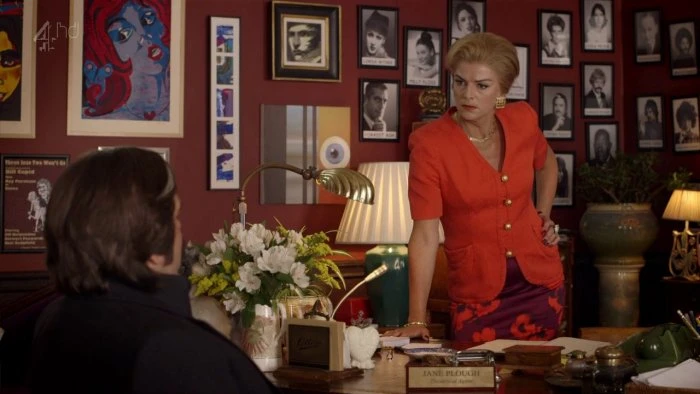
Doon Mackichan is pitch perfect as Toast's imperious agent, Jane Plough, pronounced "Pluff," whose apparently vague and sentimental manner hides a soul of steel, another common British cultural type. Mackichan, almost unrecognisable, later doubles as Plough's American equivalent and friend whose face has been immobilised by plastic surgery in the sequel Toast of Tinseltown.

Harry Peacock, so good in Star Stories, is Ray "Bloody" Purchase, Toast's acting rival, their rivalry given an extra layer of virulence by Toast openly having a joyless looking affair with Mrs Purchase, played by Tracy-Ann Oberman. Purchase is, in many ways, a slightly less unprofessional version of Toast: they are often up for the same parts or find themselves in the same productions. In real life, Peacock is married to Katherine Parkinson who co-starred with Berry in The IT Crowd - one of a number of connections between Toast of London and Berry's earlier works.
Shazad Latif and Tim Downie are great value as a couple of would be "hipster" employees of the recording studio which, for some reason, keeps on employing Toast in spite of their mutual antipathy. Alan Ford, Morgana Robinson, and Geoffrey McGivern all play different but similar characters in different episodes. Uber-Cockney Ford, best known as "Brick Top" in Snatch, worked with Berry before in the very dark Snuff Box.
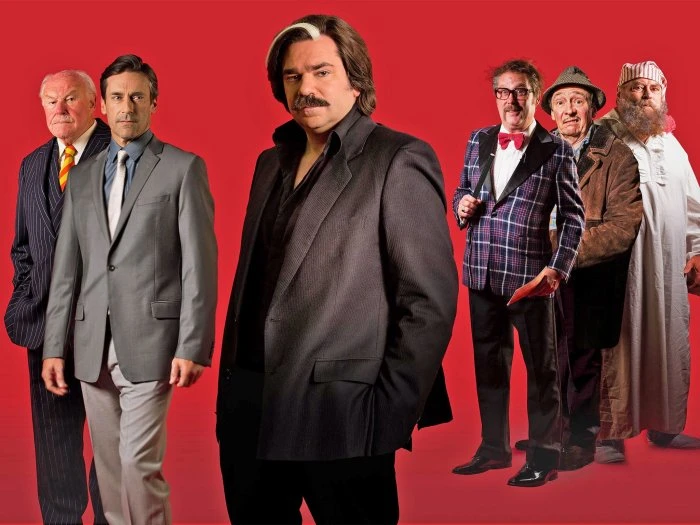
Guest stars include Amanda Donohoe, Timothy West, the aforementioned Nettles and Davison, Jon Hamm from Mad Men, and Brian Blessed in what might be the most appropriate piece of casting ever, a brief role that could not really have been played by anyone else.
As well as starring in the title role, Berry co-wrote the show with Arthur Mathews, best known for his collaboration with Graham Linehan who wrote The IT Crowd - Mathews does not appear to have written that show but, again, it shows the importance of connections. The humour is satirical more than farcical, but sometimes wanders into the surreal. This does not always work. For example, Toast's brother always appearing in a pastiche of full military dress uniform with a rubber glove for a hand was a misfired joke from the start and its repetition adds nothing to the proceedings.
Most surreal of all is the show's habit of bursting into brief musical numbers, sometimes "breaking the fourth wall" in the process. The multi-talented Berry is also a singer, musician, and composer who has produced nine albums. It is fair to say that some of his songs are better than others, but the melancholy opening theme sticks in the mind and sums up the atmosphere of the show rather effectively.
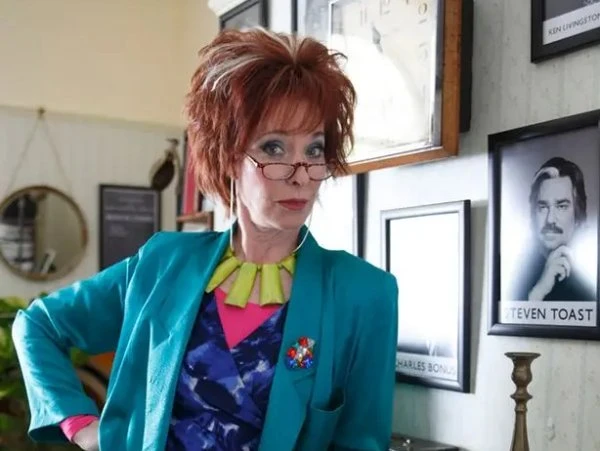
First aired on Channel 4, the first three seasons established a "cult" following and won Berry a well deserved BAFTA, but the whole thing was obviously too weird to attract a mass audience in the mainstream. The third season ended on something of a cliffhanger. It does not appear to have been officially cancelled: those involved said they would get around to doing more at some point and never did
...At least they never did until the coronavirus, when Berry took the opportunity to get together with Bathurst, Peacock, and Oberman to record some imaginary telephone conversations in their Toast of London characters. Posted on 'YouTube,' these audio shorts were well received by fans and attracted the attention of the BBC, who greenlit Barry's long cherished plan of sending Toast to America under the title Toast of Tinseltown.
To be honest, Toast of Tinseltown lacks the sense of existential despair that underpinned Toast of London: glamorous Los Angeles, even its seedy underside, cannot imitate the sense of faded grandeur that permeates much of the London scene. Nevertheless, it has a number of fine "fish out of water" moments and benefits from some strong guest turns, not least from Rashida Jones as a Latina maid with a lot of secrets and Aidan Turner as a Mansonesque hippy. Perhaps it really deserves its own separate review. Suffice it to say here that it is amusing, just not quite as amusing as the original.
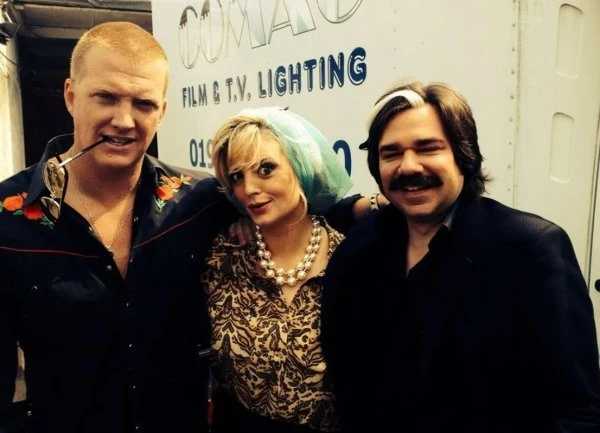
Toast is basically a one-joke project, and, although the talented cast keeps it entertaining, the joke does wear a little thin over twenty five episodes - including the pilot and Toast of Tinseltown - plus the audio shorts. Warrington Minge was, after all, only a radio sketch shorter than the shortest of the Toast audio shorts. Toast himself never develops and so never really earns our sympathy. Keeping the viewer at an emotional distance keeps Toast of London from becoming one of the great comedies, even if Toast himself is one of the great comedy grotesques.
It works best as satire, and if Berry ever adds writing his memoirs to his long list of accomplishments, it might be interesting to find out how much was based on his personal experience.
Seen this show? How do you rate it?
Seen this show? How do you rate it?
Published on March 8th, 2022. Written by John Winterson Richards for Television Heaven.


